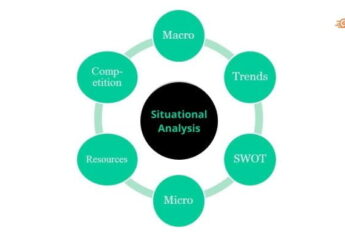Can Data Modeling Answer Questions Before You Ask Them?
by Abdul Aziz Mondal Business Intelligence Published on: 25 October 2017 Last Updated on: 27 September 2024

Every enterprise is striving to seize on any competitive advantage available. And in order to identify those opportunities, they are relying on data. Unfortunately, the ‘insights’ that vast data sets have to offer are often baffling and rarely actionable.
Executives are asking the right questions, but big data is not delivering the answers as promised. But that is all changing thanks to advances in data modeling. By shifting the focus away from collecting data and towards giving data context and contours it becomes much more of an asset.
These capabilities have advanced to a point where it’s now possible for advanced data modeling systems to answer questions before you even ask them. A combination of sophisticated automation and intuitive user design expedites the discovery process significantly. These are few of the ways that data models connect questions to answers with greater speed and precision:
Revealing Unseen Anomalies
One of the primary goals of business intelligence (BI) is to identify the extraordinary. It may signal something positive or negative, but simply by virtue of being out of the ordinary it must be known. Data modeling is intended to give form and function to data. And in that pursuit, it’s excellent at identifying inputs that deviate from the norm. Decision makers instantly know what kinds of obstacles or opportunities require their immediate attention.
Tracking Leading Indicators
The value of data is hard to overstate, primarily because it gives enterprises predictive capabilities that have never been possible before. Rather than relying on spotty forecasts and barely-educated guesses companies are able to make empirical estimates and accurate assessments. Data modeling takes formless data and automatically identifies the leading indicators. Leadership is able to focus resources on the business drivers that have the biggest impact on success.
Isolating Meaningful Trends
Trends are more elusive than they seem, especially when they are buried in huge repositories of data. Making connections and tracking trajectories is often limited to the trends that are already known. But it is the unknown ones that have the biggest strategic value, and data modeling brings them to the forefront. With a tool in place to automatically locate these trends, decision-makers are able to spend less time looking for them and more time responding to them.
Segmenting Data Sets
This is the most fundamental kind of data analysis – comparing one piece of data to another. And yet it is still one of the most frustrating features of managing massive amounts of data. Users struggle to incorporate all relevant information into one data set or another. Or they lack the fast flexibility to make comparisons at will. Data modeling allows users to navigate through information with ease and compare/contrast data on demand. The most obvious insights are immediate available. And the most invisible insights rise to the surface.
Learning from Users
The real value of data modeling is not that it gives the user more control. It’s that it learns for the user’s behaviors and begins to anticipate her requests. Over time it delivers relevant information in less time and with less effort. And it correctly identifies more of the information that is relevant to users individually and collectively. At this point data modeling is uniquely equipped to answer questions before you even ask them. And the answers it delivers contain the insights that are most urgent, essential, or agenda-oriented.
Don’t think of data modeling as a management tool? It’s true that it’s able to improve productivity and efficiency while saving time and money. But it’s real value is as a strategic informant. It generates exactly the kind of insights that optimize decision making now and moving forward.
Read More :







































































































